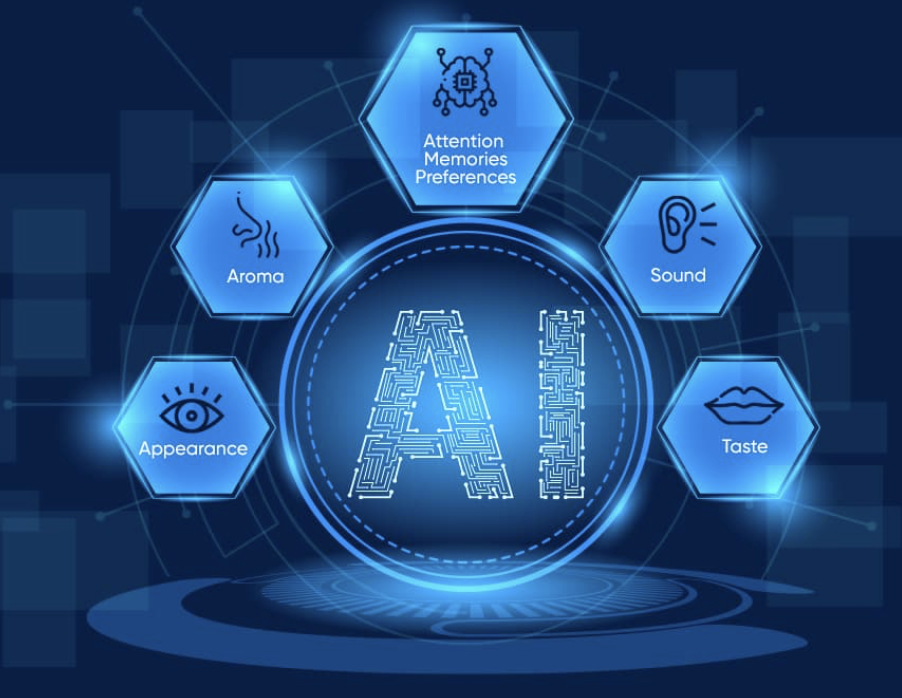The first AI Olympics of our time
The 2024 Olympics are set to showcase the transformative power of AI across various aspects of the games. From enhancing security measures to revolutionizing judging systems, AI is poised to play a pivotal role in shaping the future of this global sporting event. The integration of AI technologies promises to bring unprecedented levels of accuracy, efficiency, and innovation to the Olympic stage, ushering in a new era of athletic competition and spectator experience.
As the world eagerly anticipates the upcoming Olympics, AI is gearing up to make its mark in several key areas. The games will see AI-powered surveillance systems bolstering security efforts, while advanced algorithms assist in judging and scoring competitions with unparalleled precision. Additionally, AI will help to analyze athlete performance, providing valuable insights to improve training regimens. For viewers at home, AI-driven broadcast technologies will enhance the way audiences engage with and enjoy the Olympic spectacle, offering personalised and immersive experiences like never before.
Olympics Surveillance
AI-powered surveillance systems are becoming increasingly prevalent in cities and events worldwide, offering enhanced security and monitoring capabilities. These systems analyse video footage in real-time, detecting suspicious activities and alerting authorities to potential threats. The technology has the ability to identify visual indicators of disruptive behavior, such as weapons, prone bodies, unattended packages, or fire. The Paris 2024 Olympics will feature extensive use of AI surveillance technology to enhance security and safety. French authorities have been working with AI companies like Videtics, Orange Business, ChapsVision, and Wintics to deploy sweeping AI video surveillance. The French Ministry of the Interior is using software called Cityvision, developed by Wintics, which is trained to identify various security risks.
France enacted Law No. 2023-380 in 2023, which includes provisions allowing the use of intelligent video surveillance before, during, and after the 2024 Olympics. This makes France the first EU country to legalize such a wide-reaching AI-powered surveillance system.
AI's role in gymnastics judging
The 2024 Paris Olympics will witness a groundbreaking shift in gymnastics judging with the introduction of the Judging Support System (JSS). This AI-powered technology, first employed by the International Gymnastics Federation (IGF) in 2023, has the ability to analyze movements too intricate for the human eye. The JSS captures gymnasts' movements and evaluates them based on the sport's rulebook, promising to usher in a new era of judging accuracy.
The implementation of AI in gymnastics judging has sparked debate within the sport community. Proponents argue that it can eliminate biases and make the sport more fair and transparent. For instance, AI can precisely measure the angle of a split or the point of a toe, taking the guesswork out of technicalities. However, critics fear that AI judging might remove the subjective elements that make gymnastics special, such as artistry and the "je ne sais quoi" factor that has historically influenced scoring.
AI-assisted scoring in other Olympic sports
AI's influence extends beyond gymnastics, enhancing judging and scoring across various Olympic sports. The Olympic Broadcasting Services (OBS), in partnership with Alibaba Cloud, will leverage AI to enrich storytelling through enhanced replay systems and real-time data analytics across 21 sports. This collaboration aims to elevate viewer engagement while reducing the Games' environmental footprint.
In collaboration with Swiss luxury watchmaker Omega, the OBS will implement AI-powered intelligent stroboscopic analysis in sports such as beach volleyball, tennis, and diving. This AI-tracking system will provide viewers with a deeper understanding of athletes' movements and biomechanics, while also improving reporting accuracy by helping commentators track athletes' positions more effectively.
Impact on fairness and accuracy
The integration of AI in Olympic judging and scoring has the potential to significantly enhance fairness and accuracy. New AI tools will provide precise metrics, helping to eliminate human error and potential biases. This is particularly crucial in sports where fine margins can mean the difference between gold and silver medals.
However, the impact of AI on the subjective aspects of sports judging remains a topic of debate. While AI can excel at measuring technical elements, it may struggle with more nuanced aspects such as "confidence of performance" or artistic impression. As the Olympics embrace this technological revolution, finding the right balance between objective measurement and preserving the sport's essence will be crucial for the future of Olympic competitions.
AI-Enhanced Athlete Training
AI has revolutionized athlete training by providing personalized and data-driven approaches. Advanced algorithms analyze athletes' techniques, optimize training regimes, and push the boundaries of physical performance. For instance, the USA Swimming team utilized AI-driven analysis tools for the Tokyo 2020 Olympics, examining thousands of data points from stroke mechanics to turn efficiency. This AI-powered analysis was crucial in fine-tuning athletes' training programs.
AI-enabled virtual assistants guide athletes through rehabilitation exercises, using computer vision and machine learning to monitor movements and provide real-time feedback. These assistants, accessible via smartphones or smart TVs, ensure proper form and maintain rehabilitation schedules conveniently from home. They offer reminders, motivational cues, and send data to therapists for progress tracking.
AI for injury prevention and recovery
AI's predictive analytics plays a significant role in injury prevention. By aggregating data from various sources such as athlete tracking devices, wearable sensors, and previous injury reports, AI can detect patterns that signify increased injury risk. This allows coaches and medical staff to adjust training schedules and loads, identifying high-risk athletes early on and implementing targeted prevention measures.
Biomechanical analysis powered by AI assesses posture, gait, and muscular dynamics. Advanced algorithms process data captured through video-based assessments or wearable sensors to identify movement abnormalities. This enables therapists to design personalised training or rehabilitation programs that address the root causes of improper form or technique, strengthening specific muscles to correct imbalances and reducing the chance of injury recurrence.
RSe Global
Are any of outdated technology infrastructure, lack of an overarching technology strategy, disparate data definitions, limited data availability, and skills gaps, a roadblock to embracing AI? No. Do you even need an established technology team or skillset to get started with transformative Gen AI in your firm? No. This is where innovative AIaaS firms, such as RSe Global, step in.
We're on an exciting path to redefine what success looks like in the finance world, and we'd love for you to join us. Reach out, let’s start a conversation, and explore how we can work together.
#ai
#digitaltransformation
#artificialintelligence
#machinelearning


